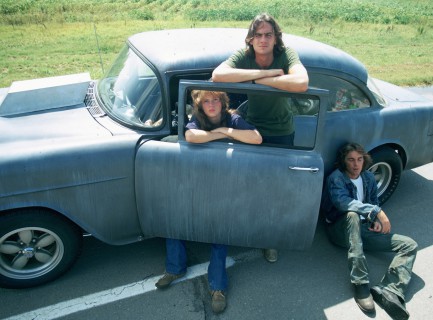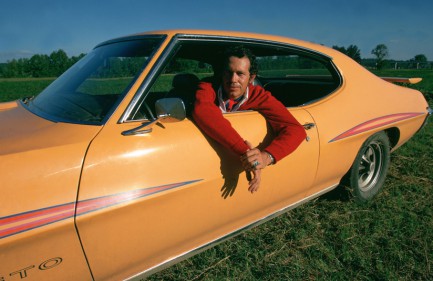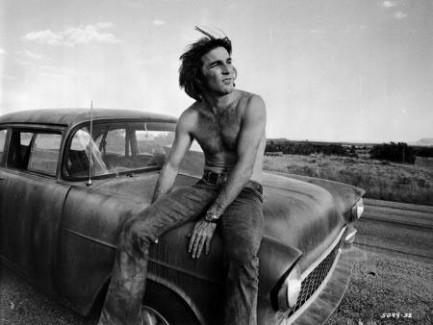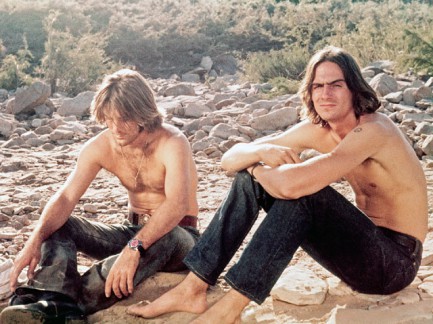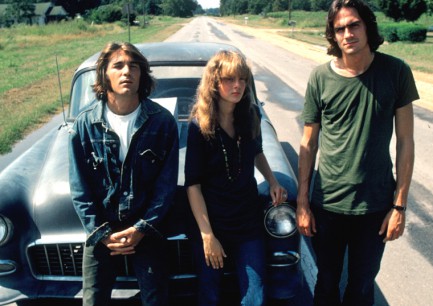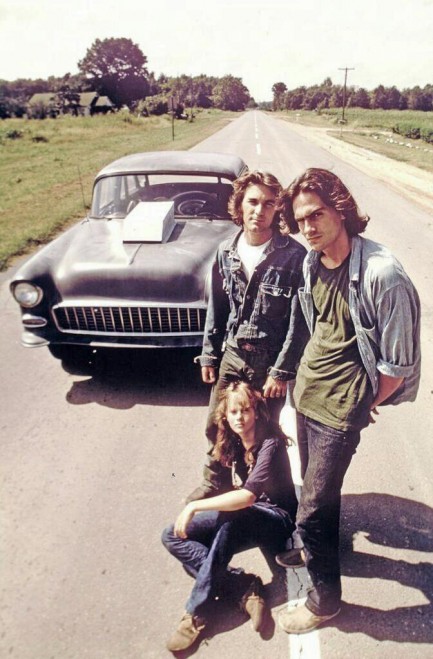| Vintage Pulp | Oct 28 2015 |

The thing is you got to keep moving.
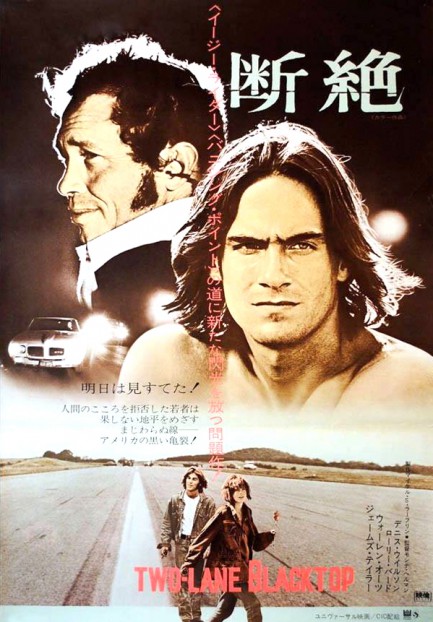
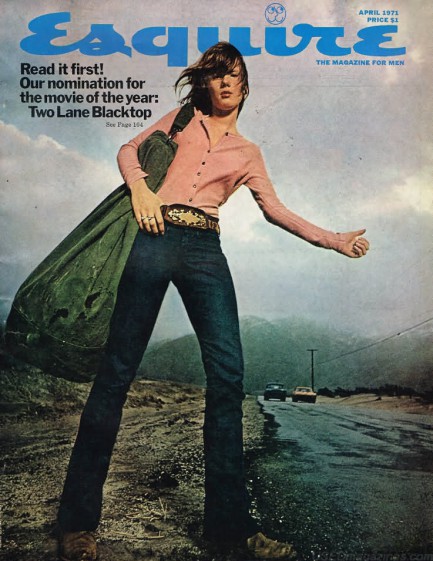 Esquire magazine called Two-Lane Blacktop the movie of the year and devoted a cover to it, and many other critics also lent their applause. It was directed by Monte Hellman and stars James Taylor, Dennis Wilson, Warren Oates, and nineteen-year-old Laurie Bird in a story of two hot-rodders who bet their cars on the result of a head-to-head cross country race. A similar movie had hit American cinemas months earlier in the form of Richard C. Sarafian’s Vanishing Point, but Two-Lane Blacktop not only has the usual feeling of road movie nostalgia due to its celebration of a peculiarly fragile type of freedom, but because it features an actress, also peculiarly fragile, who later committed suicide. Her role—all twenty or so lines of it—is iconic, even eternal, in our opinion. She’s the only one in the film who is completely free.
Esquire magazine called Two-Lane Blacktop the movie of the year and devoted a cover to it, and many other critics also lent their applause. It was directed by Monte Hellman and stars James Taylor, Dennis Wilson, Warren Oates, and nineteen-year-old Laurie Bird in a story of two hot-rodders who bet their cars on the result of a head-to-head cross country race. A similar movie had hit American cinemas months earlier in the form of Richard C. Sarafian’s Vanishing Point, but Two-Lane Blacktop not only has the usual feeling of road movie nostalgia due to its celebration of a peculiarly fragile type of freedom, but because it features an actress, also peculiarly fragile, who later committed suicide. Her role—all twenty or so lines of it—is iconic, even eternal, in our opinion. She’s the only one in the film who is completely free.While most of the acting is slightly flat, as might be expected with two pop stars and a novice in three of the four main roles, these are not people who are supposed to be showing extravagant emotion. They’re nomadic, their attachments transitory, their stories made of small moments dwarfed by a big, desolate American landscape where only the cars are truly real. Detractors say nothing happens in the film, but that isn’t true—it’s just as plotted and dramatic as Shakespeare if you listen through the roar of engines and peer through the smoke. It's one of our favorite movies, and to quote Warren Oates, "Those satisfactions are permanent." Two-Lane Blacktop premiered in the U.S. during the summer of 1971, and raced into Japan beginning today in 1972.
